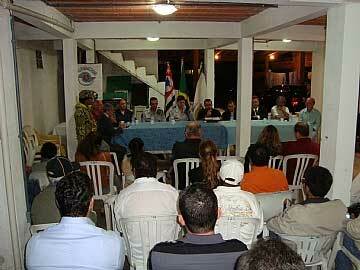Note the adjectives in the sentences below:
(1) João stayed creeped out.
(2) The meeting general has been delayed.
We note that, in (1), the adjective is the nucleus of a nominal predicate, exercising the function of subject predicative, whose core is the noun João.In (2), the adjective specifies the meaning of the noun meeting and therefore has the function of adnominal deputy. Thus, we can conclude that the adjective performs the syntactic function of an adjunct or predicative according to the relationship established with the noun. However, there are some aspects that differentiate these functions from the adjective:
1) When the adjective behaves like adnominal deputy,it is an accessory term of the prayer:
That book had recipes wonderful.
2) When the adjective behaves like predicative, it is an essential term of the prayer.
The recipes are wonderful.
Comparing these two aspects, it is possible to see that, if we remove the adnominal adjunct from the clause, there is no syntactic harm because it is an accessory term:
That book had recipes.
The same does not occur when removing the predicative, as it would cause syntactic and semantic damage to prayer:
The recipes are...
3) When the adjective acts like predicative, there is a chronological mark established by the verb that links the adjective and the noun.
She was angry, but usually it's a person calm.
Note that in the first sentences the time situation is marked by the verbs that join the noun and the adjective: angry, in the past; calm, in the present.



